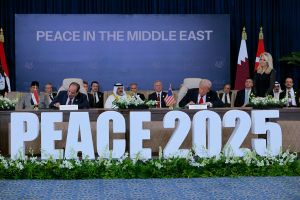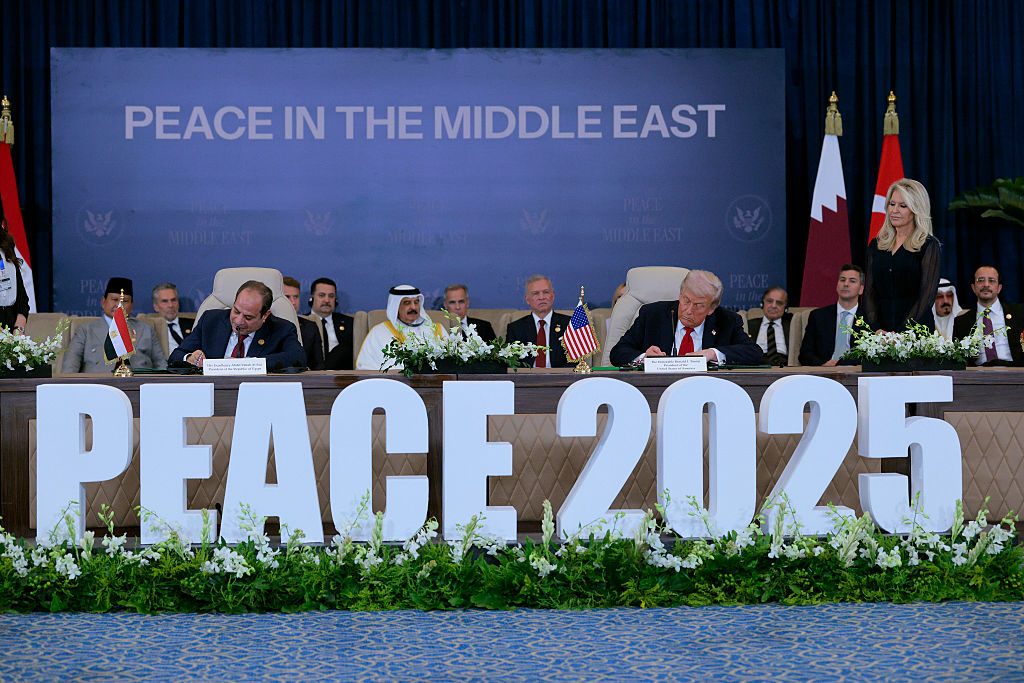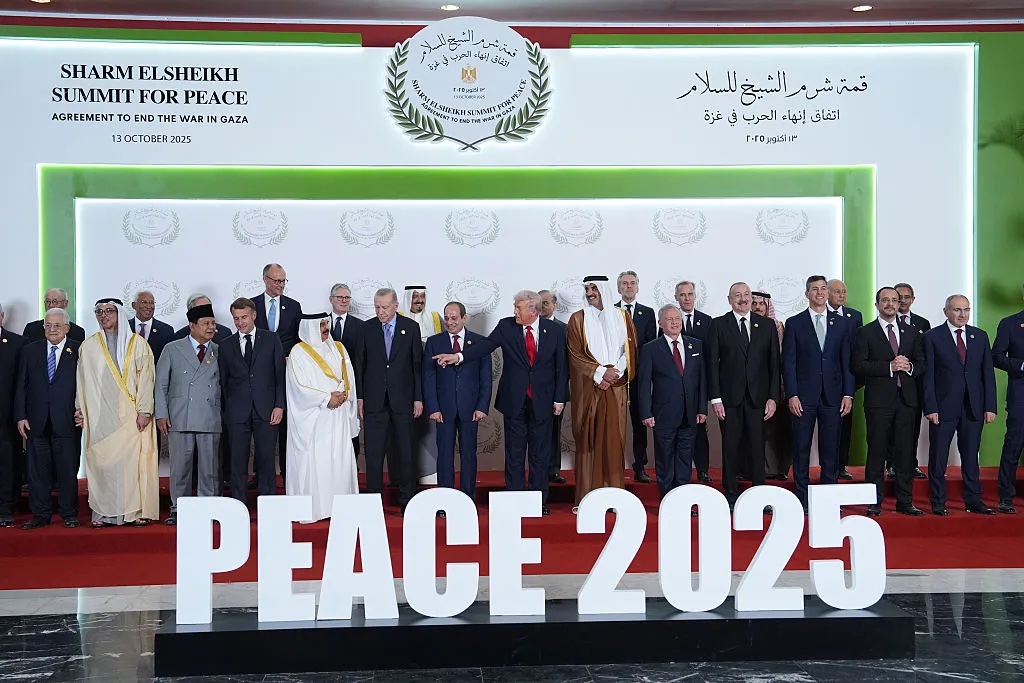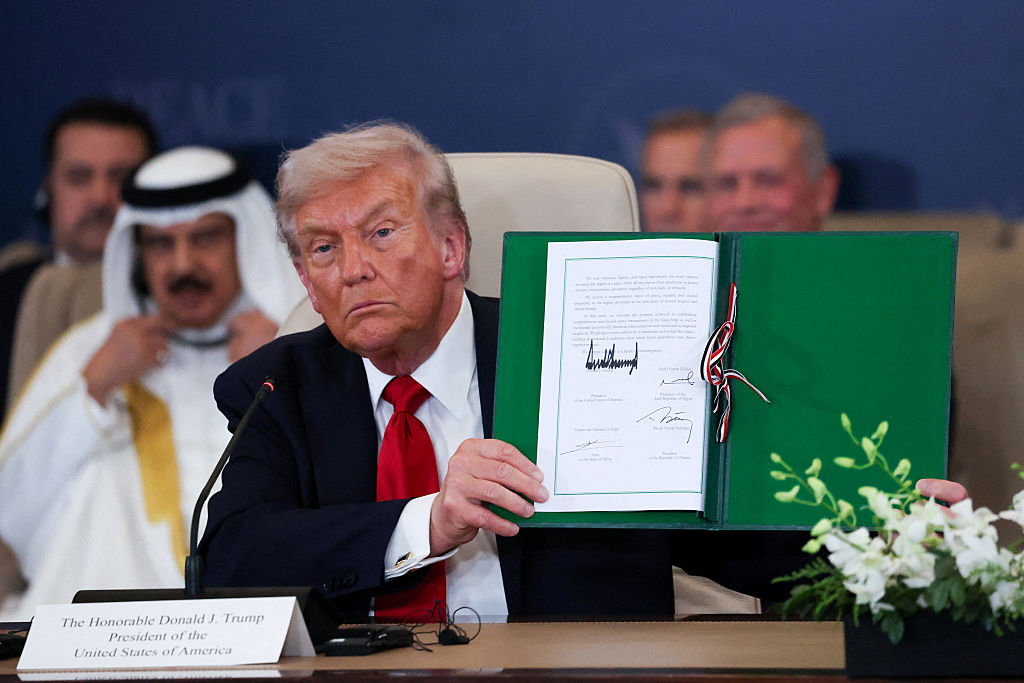Qui tacet consentire videtur: who keeps silent is seen to consent. That Latin tag haunts the western response to the situation in Israel. We’re already seeing, amid the rage and grief, people being called out for what they don’t say as much as for what they do.
But what are those of us — the ordinary schmoes, the many bystanders — who don’t have an encyclopedic knowledge of the history of Israel/Palestine, a clever take on the geopolitical implications, or a shrewd understanding of the hidden hands at work, to say? Who see only horror clambering over horror, to which any amount of historical or geopolitical subtlety seems, viscerally, to miss the point. What is the appropriate response?
What we’re seeing in Israel and Gaza now activates an instinctive response. It triggers us
There are voices who will insist that condemning Hamas’s terrorist atrocities is only meaningful if you condemn, or already have condemned, the dozens of Palestinian children killed each year by the IDF. There are other voices who insist that your historical condemnation of Israel’s violence against Palestinians is only meaningful if you’re also prepared to denounce the suicide-murders, the rocket attacks, the massacre of Israeli civilians at every chance Hamas gets.
Where were you, they will ask? Where were your finer feelings then? And if you manage to hold both thoughts in your head, or to admit the justice in both positions, well: at that point you are guilty of “whataboutery,” or apologism, or “both-sidening” atrocity. Is it whataboutery to acknowledge that these terrorist killings are unforgivable, while also acknowledging that many of the people who are going to be punished for them won’t deserve the consequences? And that the perpetrators won’t give a damn, indeed, will actively rejoice in that injustice because it’s rocket fuel for their ideology?
What we’re seeing in Israel and Gaza now activates an instinctive response. You could say it triggers us. You can’t watch it unfolding without strong feelings. And it’s hard not to want to displace those strong feelings into a sense of moral clarity. Because it’s uncomfortable to think that there simply isn’t a clear way through: just an unimaginably complex and bloody history, a competition between incompatible interests, the brute exercise of power through violence, and slaughter that’s going to go on and on regardless of how many flags are hoisted or chins stroked or apologists “called out” on social media.
You look for a moral calculus, in the wider story, and you struggle to see one that works out. Or even a strategic calculus. Do we imagine that a viable Palestinian state can be built, step by step, one murdered Jewish grandmother at a time? Do we imagine that you can extirpate Hamas’s ideology of genocidal resentment by bombing its home territory into basketball pitches and killing every single one of its fighters and suspected fighters along with whoever has the misfortune to be standing next to them?
We often talk, when we want to feel morally sophisticated, about “shades of gray.” But the figure of speech seems to me only to become really productive when you pull focus to consider how a whole vast field of grays is produced, pixel by pixel, dot by dot, out of blacks and whites.
There can be absolute moral clarity at the individual level, which is why it’s where we feel most comfortable. It should be so obvious that it doesn’t need saying (yet it apparently needs saying, and some are weirdly reluctant to say it) that killing children in their sleep, that spitting on the bruised and half-naked corpses of teenage girls, that dragging white-haired Holocaust survivors into the backs of trucks at gunpoint… that these things are evil. (I want to say “inhuman,” but that’s another fairy story we tell ourselves.) That pixel, those pixels: they are black as obsidian. The instinctive rhetorical follow-on is to say: “But.” There is no “but.”
So let us instead say, “and.” We can ask: and does the recognition of that evil license any response up to and including displacing a million people overnight from their homes, and the deaths, even if “collateral,” of hundreds more children, teenagers and old people? How many black pixels? I do not ignore that killing civilians is something that Israel, on the whole, does by accident and that Hamas, on the whole, does on purpose. That’s not much consolation to those civilians when they’re dying at scale.
Is this a counsel of despair? Maybe an admission of despair, or bewilderment, has at least the virtue of honesty. I can’t see anything but black pixels filling the screen, and the quote it leads me to is not from Plato or Thomas More but from Wittgenstein: whereof one cannot speak, thereof one must be silent. Free speech, in this context, can and sometimes should, I think, mean the freedom to keep your trap shut.
This article was originally published on The Spectator’s UK website.

























